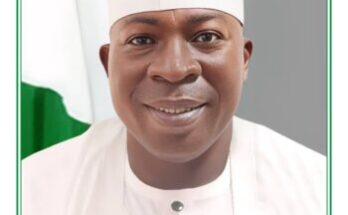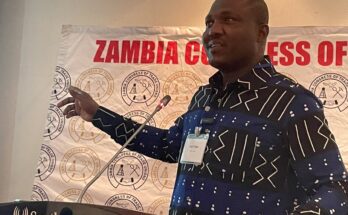In this report, KEHINDE OSASONA examines the turn of events in the trial of Senate President, Bukola Saraki, and the conclusive judgment by the Supreme Court.
For Saraki, it’s a long walk to victory After three years of legal brawl with the federal government, like a cat with nine lives, the Senate President Abubakar Bukola Saraki, has emerged victorious at the apex court; the Supreme Court of Nigeria, where an appeal filed against his acquitted by the Code of Conduct Tribunal over 18-count charge of false asset declaration and other related offences preferred against him were dismissed by the five-man panel of Justices.
They held that the entire evidence adduced by the prosecution was hearsay and therefore manifestly unreliable.
Saraki’s ordeal started in 2015 when he was arraigned by the federal government for alleged false declaration of asset, and other related offences during his tenure as governor of Kwara State between 2003 and 2011.
Thereafter, the Economic and Financial Crimes Commission, EFCC preferred the18-count criminal charges, bordering on false assets declaration preferred against him before the Code of Conduct Tribunal (CCT), setting in motion a long-drawn war fought on different fronts.
This later led to confrontation between the executive and legislative arms with each pitching tent with its constituency.
Also, the tribunal had acquitted and discharged Saraki early last year on all the charges.
Not done, the Court of Appeal sustained three out of the 18 counts of the charges after an appeal by the prosecution, and referred them back to the tribunal for retrial.
Meanwhile, the protracted legal proceedings that followed was apparently triggered by the legal team of the EFCC led by Rotimi Jacobs (SAN), who said it will challenge aspects of the judgment particularly, the pronouncement by the appellate court that “burden of proof rests squarely with the prosecution”, which it failed to discharge.
The legal battle, the intrigues Sensing danger, Saraki approached a Federal High Court in Abuja with an application to enforce his fundamental human rights, and another application before the Court of Appeal challenging the jurisdiction of the tribunal to try the country’s third citizen.
Respite came the way of Saraki when in 2015, the Supreme Court stopped the trial at the tribunal pending the determination of the appeal challenging its jurisdiction to try the matter.
Saraki’s defence team had earlier submitted that the panel was not properly constituted arguing that it was having only two members.
Arguing further, he prayed that the Attorney General of the Federation (AGF) has no powers to prosecute the case, except the Code of Conduct Bureau (CCB).
However, in 2016, a threemember panel of justices of the Supreme Court presided over by Justice Walter Onnoghen, the current Chief Justice of Nigeria (CJN), ordered Saraki to face trial at the CCT.
The apex court hinged its judgement on the premise that the tribunal was empowered with quasi-criminal jurisdiction powers, and can validly sit with only the chairman and one member in commencing the trial.
When the stage was set on the 18th September 2015 for Saraki arraignment before Justice Danladi Umar of the Code of Conduct Bureau on the initial 13-count, Saraki failed to appear and his action prompted the presiding judge of the CCT to issue a warrant of arrest to the Inspector General of Police (IGP) and other security agencies to arrest and produce Saraki in court.
Eventually, all was set for Saraki’s arraignment on September 22, 2015 after the Court of Appeal on September 21, 2015 refused an ex parte application by Saraki’s first defence counsel, Joseph Daudu (SAN) craved for an injunction to stop the bench warrant issued against Saraki and to suspend proceedings at the tribunal pending the determination of the main appeal against the panel’s jurisdiction.
His triumph at CCT In June 2017, the Code of Conduct Tribunal (CCT) eventually upheld the no case submission filed by the Senate President.
The Tribunal, therefore, discharged and acquitted him of the 18-count charge of false assets declaration levelled against him by the federal government.
In his ruling, the tribunal chairman, Danladi Umar, held that the four prosecution witnesses failed to establish a prima facie against him.
According to Umar, the evidence given by the prosecution witnesses were manifestly unreliable saying that no court could attach to it, not to talk of convicting on it.
Making a particular reference to the evidence in-chief of the third prosecution witness, who admitted that his report was based on information from his team members, and that of Mr. Samuel Madojemu, who testified to the fact that oral investigation was conducted on Saraki but without written report on him, the tribunal insisted that “such an evidence has no probate value upon which the tribunal can hold the charges against the defendant.
Umar also stated that “the report given by the Economic and Financial Crimes Commission (EFCC) was more of intelligence gathering rather than conventional investigation”.
The Supreme Court verdict On account of the initial rulings, the Supreme Court had in a lead judgment delivered by Justice Centus Nweze set free the Senate President, Bukola Saraki, of charges levelled against him in the case of false assets declaration at the CCT.
The apex court upheld Saraki’s appeal and discharged him of the remaining three charges against him.
In its judgement, the Supreme Court affirmed the June 2017 decision of the CCT which ruled that the prosecution failed to prove the case against Saraki.
The judgement was sequel to Saraki’s application of a no-case submission, where the tribunal chairman, Danladi Umar, ruled that the evidences tendered by the prosecution were insufficient to substantiate charges against the defendant.
Saraki reacts Applauding the Supreme Court ruling that upheld his Appeal Court victory, Dr.
Saraki, expressed confidence in the judicial process and its ability to do justice to all manners of persons.
In a statement he signed, Saraki expressed gratitude to all Nigerians who supported him since the case commenced three years ago.
“At the end of a tortuous journey of 1018 days counting from September 22, 2015 when the case began at the Tribunal, I am happy that I have been vindicated.
“I have always believed in the infallibility of our Judiciary, secure in the knowledge that our courts – the last refuge of the oppressed – would never condemn the innocent.
This outcome is also a vindication of my belief in the rule of law,” Saraki enthused.
Buhari, Sagay, Ahmed speak Reacting through media aide, Garba Shehu, President Muhammadu Buhari said the ruling has cleared Saraki of graft charges.
The president described the country’s judicial system, as truly working irrespective of the challenges, saying that no one should be allowed to undermine or break it.
“I have seen many instances where individuals and groups seek the destruction of the judicial institution in the foolish thinking of saving their skin, instead of going through the painstaking process of establishing their innocence,” “In the case of the Senate President, Bukola Saraki, I have seen him take the tortuous path of using the judicial process.
He persevered, and in the end, the highest court of the land, the Supreme Court, says he is not guilty as charged.
“This is what I have done in the three elections in which I was cheated out, before God made it possible for me to come here the fourth time I ran for the office.” Buhari said Saraki’s journey from the lowest to the highest court of the land provides an important example that all Nigerians should emulate.
Reacting too, Chairman of the Presidential Advisory Committee Against Corruption, PACAC, Prof.
Itse Sagay, SAN, said he was shocked by the Supreme Court judgment which cleared Senator Saraki of assets declaration charges at the Code of Conduct Tribunal, CCT.
“The only thing is that I am a little bit surprised at the decision, but that is nothing when you haven’t seen the evidence, the legal arguments the court used to arrive at its decision.
“It is a technical thing, one has to see the evidence and the law the court applied before one can pass any judgment.
So, I am waiting to get a summary of the judgement at least to have an idea”.
Also, Kwara State Governor, Alhaji Abdulfatah Ahmed, hailed the Supreme Court verdict and described the apex court as the bastion of democracy in the country.
“The apex court’s judgment has reinforced the belief that the judiciary remains the hope of the common man”, he said through his Chief Press Secretary, Abdulwahab Oba.
Ahmed explained further that “the judgment is a watershed in political journey of the President of the Senate, Federal Republic of Nigeria and would lay to rest his political persecution”.
Blueprint gives you the latest Nigerian news in one place. Read the news behind the news on burning National issues, Kannywood, Videos and the Military



